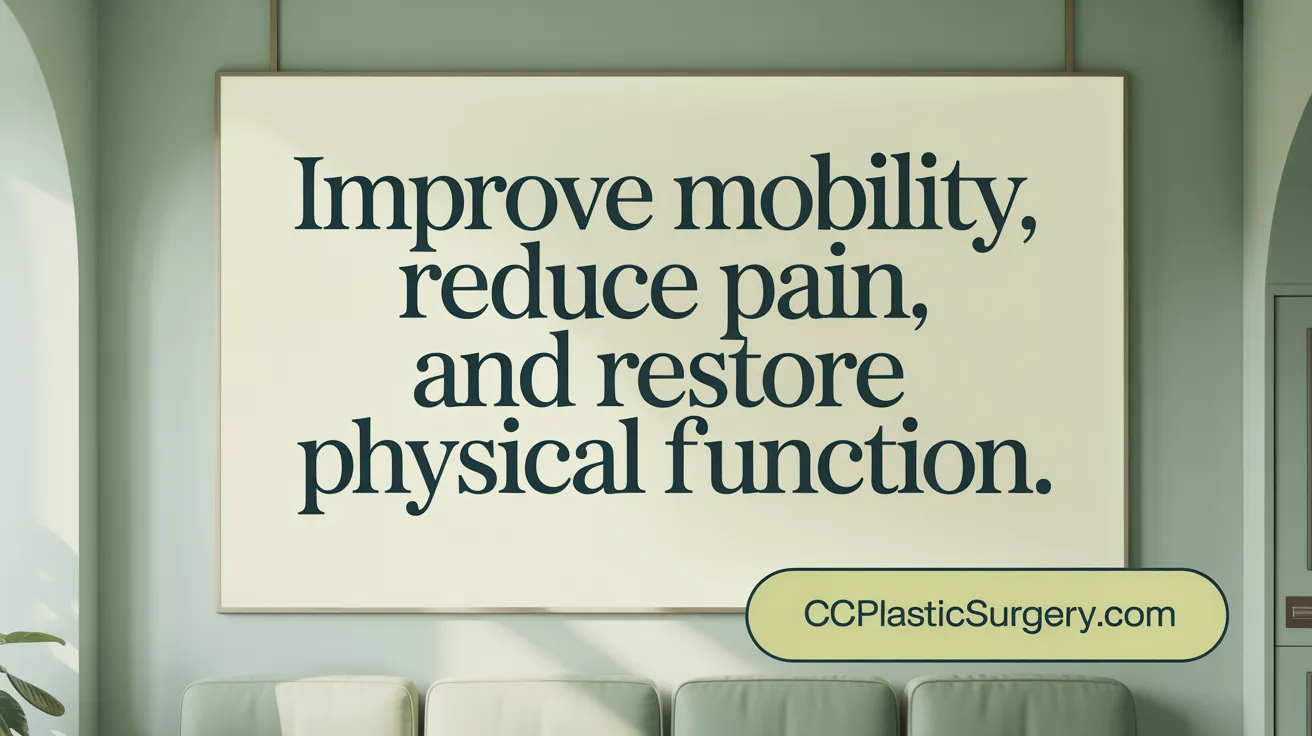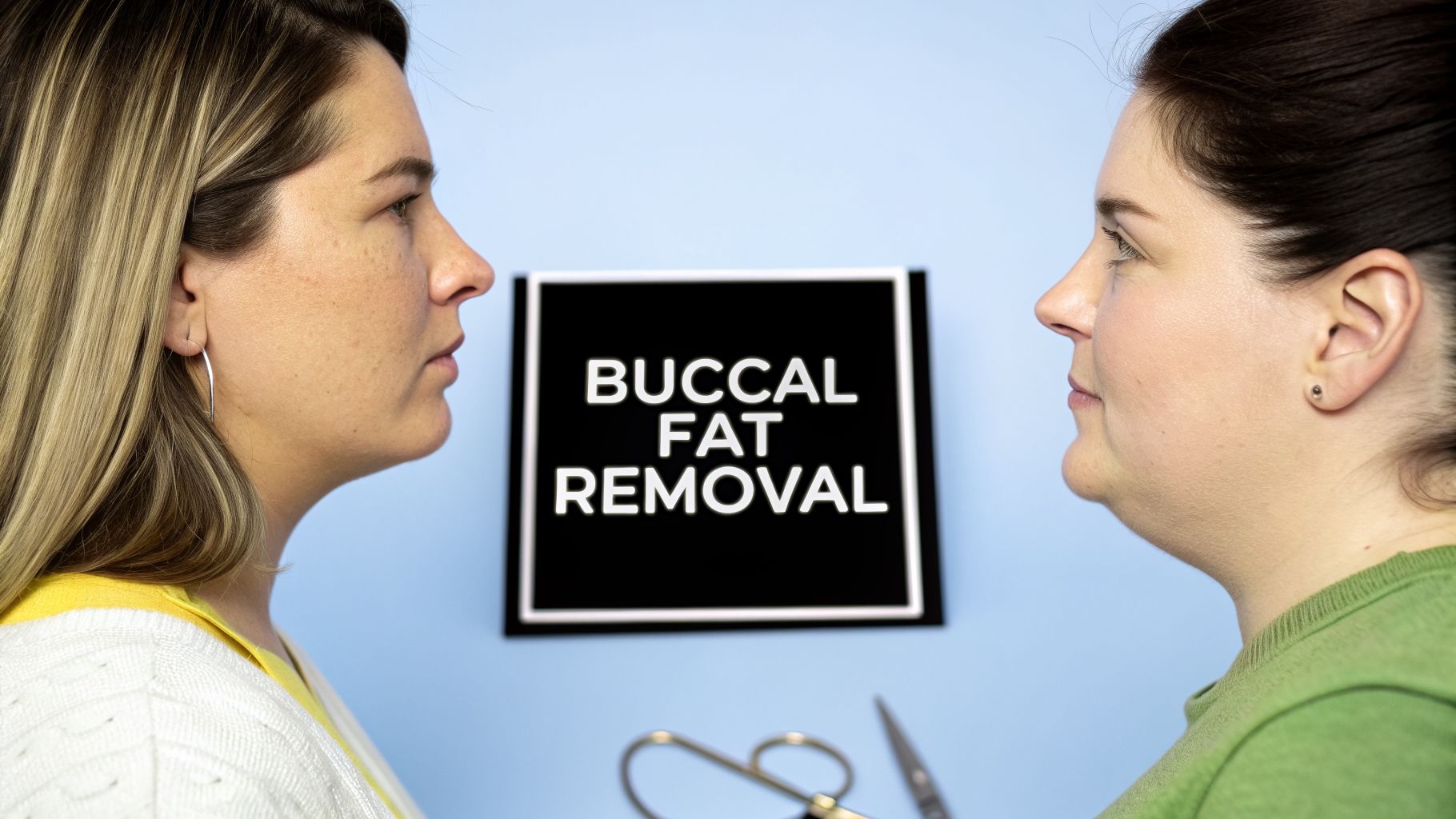
February 25, 2026
How to Sleep After Breast Augmentation for a Better Recovery
Learn how to sleep after breast augmentation with expert tips on safe positions, pillow setups, and pain management for a comfortable and speedy recovery.
Oct 10, 2025

Plastic surgery is widely recognized not only for its physical transformations but also for its profound emotional and psychological impact on patients. From improving physical function and aesthetics to enhancing mental well-being and self-confidence, plastic surgery offers a multifaceted spectrum of benefits. This article explores these dimensions through comprehensive research findings and patient perspectives, revealing how aesthetic and reconstructive procedures contribute to both physical health and psychological resilience.

Plastic surgery provides many benefits that extend beyond just changing appearance. It can significantly improve a person’s physical health and everyday functioning.
Procedures like tummy tucks and arm lifts not only contour the body but also help strengthen muscles and improve posture. These enhancements can lead to increased mobility and reduce discomfort, especially when excess skin or tissue causes irritation or pain.
Corrective surgeries, such as rhinoplasty for nasal obstruction and respiratory health, can improve respiratory health by fixing nasal deformities or obstructions. Similarly, breast reduction surgery for pain relief can alleviate chronic neck, back, and shoulder pain caused by large breasts. Restoring physical function and reducing pain improve overall comfort and quality of life.
Many reconstructive operations aim to repair injuries or deformities—restoring normal function and enabling patients to perform daily activities more easily. For example, scar revision and facial reconstruction not only improve appearance but also improve physical ability.
Successful outcomes are often supported by good nutrition and healthy lifestyle habits, which promote healing and long-term well-being. Overall, plastic surgery can enhance physical health by reducing pain, improving function, and restoring bodily operations, contributing to better physical and emotional quality of life.
This holistic approach to health underscores how plastic surgery can be a valuable tool for improving everyday function, comfort, and overall physical health.

Plastic surgery often brings significant emotional and psychological advantages to patients seeking aesthetic or reconstructive procedures. One of the primary benefits is the enhancement of body image, which can lead to increased self-esteem. When individuals feel more satisfied with their appearance, they tend to experience greater confidence in social interactions, professional pursuits, and personal relationships.
Many patients report reductions in anxiety and depression following successful surgeries. For example, procedures like breast reduction not only improve physical comfort but also bolster mental health by alleviating feelings of self-consciousness and physical discomfort. These improvements can encourage a more active lifestyle and foster a positive outlook on life.
In addition to boosting self-esteem, plastic surgery can serve as an emotional healing process, especially for those who have experienced trauma, bullying, or childhood neglect related to their appearance. Correcting specific features or scars can help individuals feel more aligned with their self-image, reducing inner conflicts and psychological distress.
However, the psychological benefits of plastic surgery are complex and vary from person to person. Factors such as pre-existing mental health issues, unrealistically high expectations, or conditions like body dysmorphic disorder can influence outcomes. Some individuals may experience dissatisfaction despite successful procedures, highlighting the importance of thorough preoperative assessment and realistic goal setting.
Overall, while plastic surgery has the potential to significantly improve emotional well-being, it should be approached with a comprehensive understanding of individual psychological factors. When combined with proper psychological support and expert consultation, plastic surgery can be a powerful tool for building confidence, promoting mental health, and fostering a healthier self-image.

Patients often share positive experiences regarding the impact of plastic surgery on their emotional health and overall satisfaction. Many report feeling more confident about their appearance, which translates into improved self-esteem and social confidence. For example, individuals who have undergone breast reductions or facial surgeries frequently mention a newfound sense of normalcy and self-acceptance, leading to better personal and professional relationships.
The transformation achieved through cosmetic procedures can also contribute significantly to emotional recovery. Patients describe relief from longstanding insecurities and body dissatisfaction, which can diminish anxiety and depressive symptoms. Testimonials highlight feelings of being whole again and overcoming self-esteem issues that once affected their daily lives (Psychological Benefits of Cosmetic Surgery).
From the patient's viewpoint, plastic surgery plays a vital role in enhancing quality of life by fostering increased physical comfort and emotional resilience. Most patients recognize that realistic expectations and thorough consultations with qualified surgeons are essential factors in reaching satisfying results. When both physical and emotional outcomes align with personal goals, plastic surgery can serve as a meaningful step toward improved mental well-being (Mental health benefits of plastic surgery).
Overall, the subjective experiences and satisfaction reports underscore that plastic surgery, when appropriately approached, can be a valuable tool for emotional healing and life enhancement (Patient testimonials on plastic surgery outcomes).

Plastic surgery can have profound psychological effects, offering both benefits and potential risks that must be carefully considered. Many patients experience enhanced body image, higher self-esteem, and improved confidence following successful procedures. These positive changes often lead to greater social confidence and an improved quality of life, especially when physical concerns significantly impact mental well-being.
However, the psychological landscape of cosmetic surgery is complex. While many individuals benefit from the emotional uplift, some face risks such as dissatisfaction if expectations are unrealistic. Patients with pre-existing mental health issues—particularly body dysmorphic disorder (BDD), depression, or anxiety—are more susceptible to adverse outcomes. BDD, in particular, can lead to persistent dissatisfaction and severe distress, as individuals may obsess over perceived flaws that surgery cannot address.
To optimize psychological benefits and minimize risks, thorough screening and preoperative assessment are vital. Identifying mental health concerns allows surgeons to manage expectations effectively and, when necessary, refer patients for psychological support. Addressing these issues preemptively can prevent postoperative disappointment and reduce the risk of worsening mental health conditions.
Overall, plastic surgery holds the potential for significant psychological improvements. Nonetheless, surgeons and patients must work together to ensure psychological readiness through careful evaluation, realistic goal-setting, and ongoing mental health support. This balanced approach helps maximize benefits while safeguarding against possible harms, leading to more positive, long-term outcomes.
For further understanding, searching for "Psychological risks and benefits of cosmetic surgery" can offer comprehensive insights into how these procedures influence mental health and emotional well-being over time.
Research on the psychosocial outcomes of cosmetic surgery reveals a generally positive trend. Many studies confirm that individuals undergoing cosmetic surgery experience improvements in self-esteem, social confidence, and overall quality of life, especially with popular procedures such as breast reduction, augmentation, and rhinoplasty. These benefits are more clearly observed in the short term, with patients often reporting feeling more satisfied with their appearance and more socially engaged within months after surgery (Psychological Benefits of Cosmetic Surgery).
However, when looking at long-term outcomes, the evidence becomes less definitive. Few studies extend beyond a year, and some long-term data suggest that mental health can even decline many years after the procedure (psychosocial outcomes of cosmetic surgery). This inconsistency highlights the need for more comprehensive, long-term research to fully understand the enduring psychological impacts (psychological benefits of cosmetic surgery).
Preoperative psychological assessment plays a crucial role in predicting postoperative satisfaction. Patients with realistic expectations and good mental health tend to fare better. Conversely, individuals with underlying psychological issues—such as body dysmorphic disorder (BDD), depression, or anxiety—are at higher risk for dissatisfaction, social isolation, or worsening mental health post-surgery (psychological factors affecting cosmetic surgery outcomes).
Factors such as age, gender, prior mental health history, and personality traits influence how well patients adjust psychologically after their procedures. For example, younger patients and women generally report higher satisfaction (Plastic surgery trends in women 20s and 30s), while those with pre-existing mental health challenges may experience adverse effects if not properly screened and supported (Psychological Impact of Aesthetic Surgery).
In summary, cosmetic surgery can offer significant psychosocial benefits, but its success is highly dependent on careful psychological screening and realistic goal setting (managing expectations in cosmetic procedures). More rigorous, long-term studies are essential to better understand the enduring psychological effects of these procedures (Limitations of cosmetic surgery studies).
Cosmetic procedures encompass a wide range of surgical and nonsurgical options aimed at improving appearance and boosting self-confidence. Surgical treatments include common procedures like rhinoplasty (nose reshaping), facelifts for skin tightening, breast augmentation and reduction, abdominoplasty (tummy tuck), liposuction, and body lifts. These surgeries often produce dramatic and durable results, addressing structural issues such as excess skin, tissue irregularities, and shaping concerns.
In addition to surgical options, nonsurgical treatments have gained popularity for their less invasive nature and quicker recovery times. These treatments include Botox injections, dermal fillers, chemical peels, laser therapies, and other skin care techniques. They are ideal for minor corrections, skin rejuvenation, and temporary enhancements.
The main purpose of these procedures is to modify or enhance specific body parts to achieve a more harmonious and youthful appearance. Many patients seek cosmetic surgery to improve self-esteem and overall emotional well-being. Benefits extend beyond physical appearance, often leading to increased confidence and satisfaction with one's body as described in studies about psychosocial outcomes of cosmetic surgery.
However, all procedures carry potential risks such as infections, scarring, nerve damage, and unsatisfactory results. It is crucial for patients to consult board-certified, qualified surgeons to ensure safety and realistic expectations. Overall, cosmetic surgeries serve to help individuals feel more comfortable in their own skin, contributing positively to their quality of life.
Plastic surgery is much more than a physical transformation; it is a journey that intertwines emotional healing and physical improvement. Patient experiences and research underscore significant benefits in self-esteem, mental health, and overall life satisfaction, especially when surgeries are chosen thoughtfully with realistic expectations and psychological readiness. Although risks and complexities exist—particularly concerning mental health conditions such as body dysmorphic disorder—plastic surgery remains a powerful tool for enhancing quality of life, confidence, and physical well-being. Future advances and more rigorous long-term research promise to further clarify and optimize these outcomes, supporting patients in achieving both external and internal harmony.

February 25, 2026
Learn how to sleep after breast augmentation with expert tips on safe positions, pillow setups, and pain management for a comfortable and speedy recovery.

February 24, 2026
Explore our curated gallery of buccal fat removal before and after results. See real patient outcomes, understand candidacy, and learn what to expect.

February 23, 2026
Discover how to reduce frown lines with expert-backed tips on skincare, lifestyle changes, and professional treatments that deliver real, lasting results.